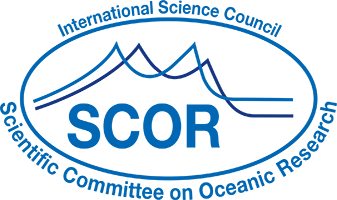A pilot project aiming to install and operate ocean sensors on platforms operated by colleagues in Mauritius, Mozambique, the Seychelles and South Africa to study ocean acidification in East Africa was officially launched during the kick-off workshop at the end of July. The project is called "OceAn pH Research Integration and Collaboration in Africa – ApHRICA". The launch of ApHRICA will not only enhance local ocean monitoring efforts in East Africa but will also facilitate connections to global efforts such as the Global Ocean Acidification Network (GOA-ON).
ApHRICA is a public-private partnership launched jointly by the U.S. Department of State, the Ocean Foundation, the Heising-Simons Foundation, Schmidt Marine Technology Partners, and the XPRIZE Foundation. The project was announced at the 2015 Our Ocean Conference in Chile, and was now officially launched with ApHRICA's regional capacity building workshop held July 26-30, 2016, in Mauritius. The workshop welcomed ocean scientists from African countries to learn how to operate new ocean acidification (OA) monitoring technology and to connect to global efforts such as GOA-ON.
Among the speakers at the workshop were: White House Science Envoy for Ocean, Dr. Jane Lubchenco, Dr. Roshan Ramessur at the University of Mauritius, and ocean sensor trainers and scientists Dr. Andrew Dickson of University of California San Diego, USA, Dr. Sam Dupont of University of Gothenburg, Sweden, and James Beck, CEO of Sunburst Sensors – a company that provides their 'iSAMI' ocean pH sensor for this project.
The first ApHRICA workshop was a critical step in increasing the worldwide coverage of the GOA-ON and training monitors and managers to better understand the impacts of OA. This is particularly important in East Africa that has such a strong reliance on marine resources but lacks the capacity to monitor OA in all marine environments, from estuarine areas to open ocean. The hope is that ApHRICA will strengthen the resiliency of coastal communities, improve oceanographic collaboration in the region, and that the newly-gathered data will contribute significantly to GOA-ON, filling a major data gap in the notoriously mysterious Indian Ocean.
For further information, please contact Esther Bell (U.S. Department of State) by email at BellEF(at)state.gov.





 Please wait...
Please wait...